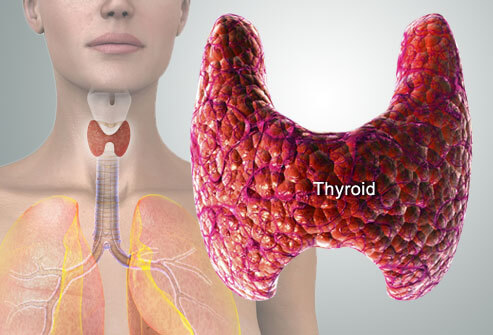The first step in the synthesis of thyroid hormones is the organification of iodine. Iodide is taken up, converted to iodine, and then condensed onto tyrosine residues which reside along the polypeptide backbone of a protein molecule called thyroglobulin. This reaction results in either a mono-iodinated tyrosine (MIT) or di-iodinated tyrosine (DIT) being incorporated into thyroglobulin. This newly formed iodothyroglobulin forms one of the most important constituents of the colloid material, present in the follicle of the thyroid unit.
[ads2]

The other synthetic reaction, that is closely linked to organification, is a coupling reaction, where iodotyrosine molecules are coupled together. If two di-iodotyrosine molecules couple together, the result is the formation of thyroxin (T4). If a di-iodotyrosine and a mono-iodotyrosine are coupled together, the result is the formation of tri-iodothyronine (T3).
The T3 and T4 released from the thyroid by proteolysis reach the bloodstream where they are bound to thyroid hormone binding proteins. The major thyroid hormone binding protein is thyroxin binding globulin (TBG) which accounts for about 75% of the bound hormone.
[ads2]

In order to attain normal levels of thyroid hormone synthesis, an adequate supply of iodine is essential. The recommended minimum intake of iodine is 150 micrograms a day. Intake of less than 50 micrograms a day is associated with goiter. High iodine levels inhibit iodide oxidation and organification. Additionally, iodine excess inhibits thyroglobulin proteolysis (this is the principal mechanism for the antithyroid effect of inorganic iodine in patients with thyrotoxicosis).
[ads2]


